AccuWeather meteorologists are available 24/7 to provide further insights and updates on evolving weather conditions. Please contact pr@accuweather.com during regular business hours, or support@accuweather.com or call AccuWeather’s Media Hotline at (814)-235-8710 at any time to arrange interviews with AccuWeather experts or to request the most updated graphics for print or broadcast.
Early Tropical Concerns Brewing Ahead of Hurricane Season
May 28, 2024
-
> Early tropical threat is not expected to bring direct impacts to the U.S. next week -
> Flooding is possible in parts of Cube, Hispaniola, and Jamacia -
> AccuWeather 2024 U.S. Hurricane Forecast predicts 20-25 named storms and four
to six direct impacts to the United States
AccuWeather Global Weather Center – May 28, 2024
A disturbance, known as a tropical wave, has been interacting with moisture and storms in the Caribbean. Forecasters are monitoring an "area of concern" for next week spanning from the northern Caribbean into the southwestern Atlantic, although AccuWeather Lead Hurricane Forecaster Alex DaSilva says it is far from showing any signs of tropical development and is not likely to do so for several more days at the very least.
AccuWeather expert meteorologists say the threat of direct impacts to the United States is minimal at this time, although they are concerned about potential impacts in the Caribbean.
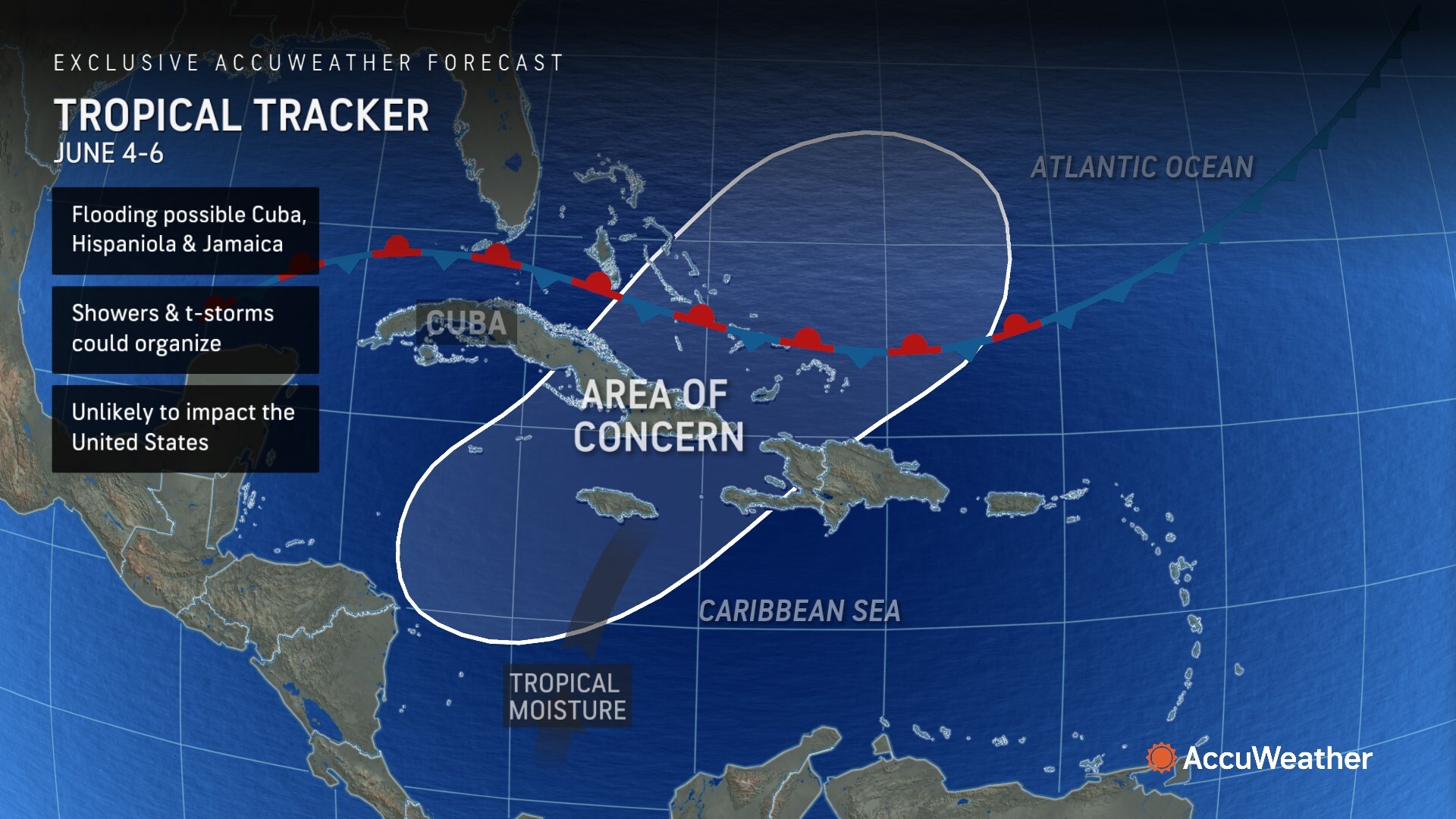
A disturbance, known as a tropical wave, has been interacting with moisture and storms in the area. AccuWeather Lead Hurricane Forecaster Alex DaSilva says it is far from showing any signs of tropical development and is not likely to do so for several more days at the very least.
“The tropics have the potential to come alive during the first week of June. A surge of tropical moisture will stream north through the central Caribbean. Atmospheric conditions will gradually become more favorable for development over the next 10 days,” said DaSilva. “The time frame we are highlighting is between June 4-6 in the central Caribbean to the Bahamas. Regardless of development, we are concerned about flash flooding in Jamacia, Hispaniola and eastern Cuba.”
AccuWeather expert meteorologists say the pattern is forecast to be marginally favorable for tropical development in this region through the middle of June.
“Later during the first week of June, a disturbance in the middle part of the atmosphere will move across the eastern part of the Gulf of Mexico and may interact with that tropical moisture zone,” said AccuWeather Lead Long-Range Forecaster Paul Pastelok. “There is a remote chance it could initiate a tropical depression or more in this area.”
A portion of this area, along with a zone along the southern Atlantic coast of the U.S., experienced cooling water temperatures earlier this spring. Pastelok says the cooling trend has now reversed and water temperatures are climbing.
If a tropical system were to develop, DaSilva said steering breezes would take it north of the southern Bahamas and the Turks and Caicos, and away from the U.S.
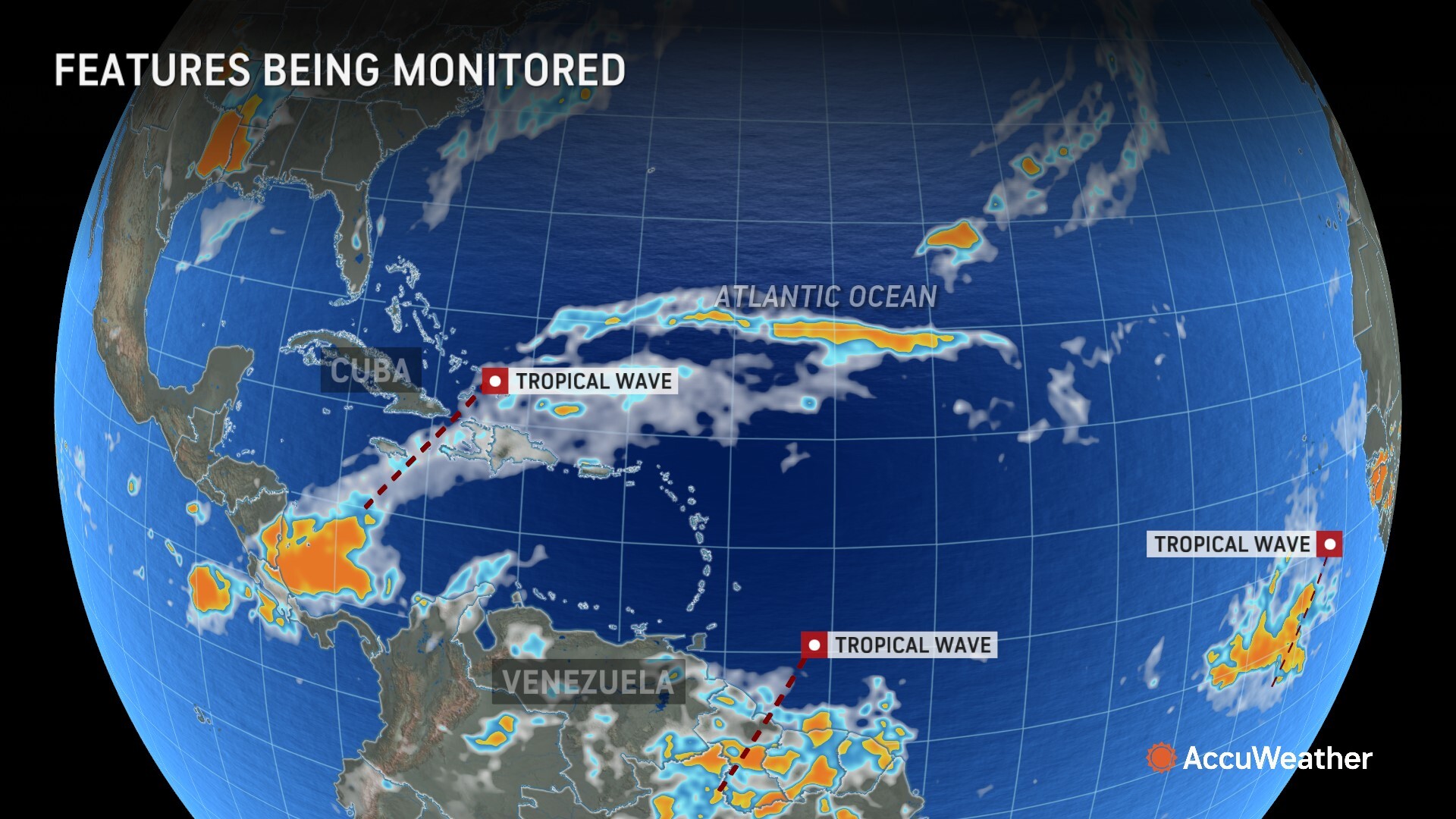
AccuWeather expert meteorologists say this is an important time of year to remind vacationers, swimmers, surfers and lifeguards about the dangers of rip currents and rough surf during hurricane season.
“Rip currents can sometimes be very localized, and they can catch even experienced swimmers off guard and lead to tragedy,” warned AccuWeather Chief Meteorologist Jon Porter. “Rip currents are a threat that unfortunately claim many lives every year on blue sky days.”
Explosive Hurricane Season on the Horizon
Millions of people have been impacted by destructive thunderstorms, flash flooding, derechos, and more than 1,000 tornado reports across the U.S. so far this year.
AccuWeather expert meteorologists are warning people along the Atlantic and Gulf of Mexico coastlines not to let their guard down or let severe weather fatigue set in; now is the time for families and businesses to prepare for hurricane season.
The AccuWeather 2024 U.S. Hurricane Forecast released in March warned of an “explosive” hurricane season in the Atlantic basin. AccuWeather expert meteorologists and long-range forecasters predict 20-25 named storms this season. Four to seven of those storms could intensify into major hurricanes. AccuWeather’s forecast predicts four to six direct impacts on the U.S. this year.
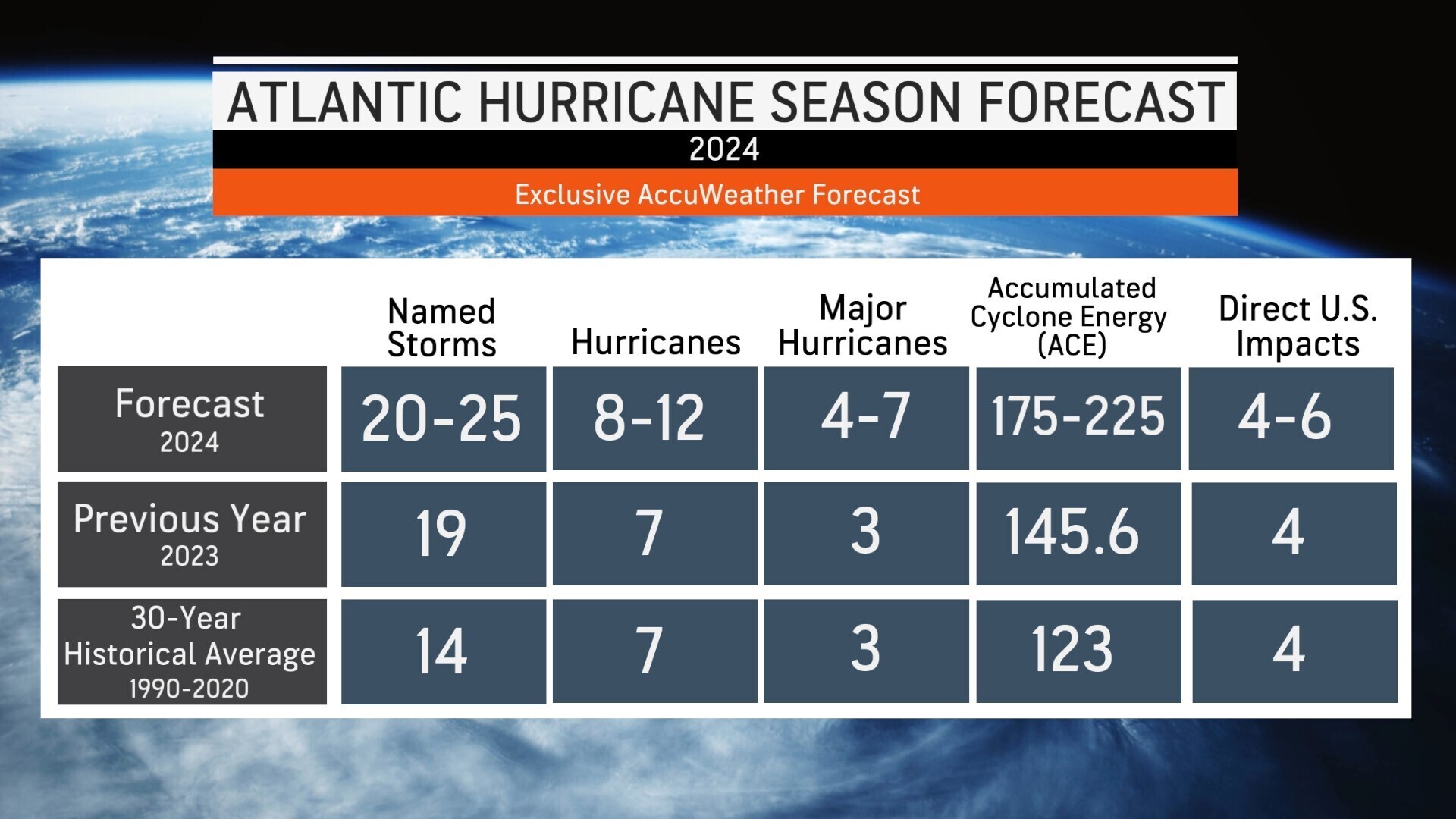
With record-warm sea surface temperatures and warm waters reaching hundreds of feet below the surface, DaSilva warned families, businesses, and government leaders on May 22 to prepare for rapidly intensifying tropical threats that could leave people with less time to react and evacuate.
“Prepare for hurricane season as early as possible this year. A good rule of thumb is to prepare for one category above what is forecasted to make landfall,” warned DaSilva. “Those very warm ocean temperatures extend hundreds and hundreds of feet below the surface. If a tropical storm or hurricane moves over very warm ocean waters, it’s going to have plenty of fuel to work with; that is one of the major contributors to rapid intensification.”
In addition to preparing for impacts from destructive wind, flooding rain, and storm surge inundation this hurricane season, AccuWeather expert meteorologists are warning families and businesses to prepare for the threat of extended power outages in extreme heat.
Hundreds of thousands of people in southeast Texas spent days without electricity and air conditioning, with AccuWeather RealFeel Temperatures soaring above 100 degrees, after a derecho toppled transmission lines and towers in the Houston area.
The derecho and tornadoes that raced through the Houston area on May 16 caused an estimated $5-7 billion in damage and economic losses, according to a preliminary estimate from AccuWeather.
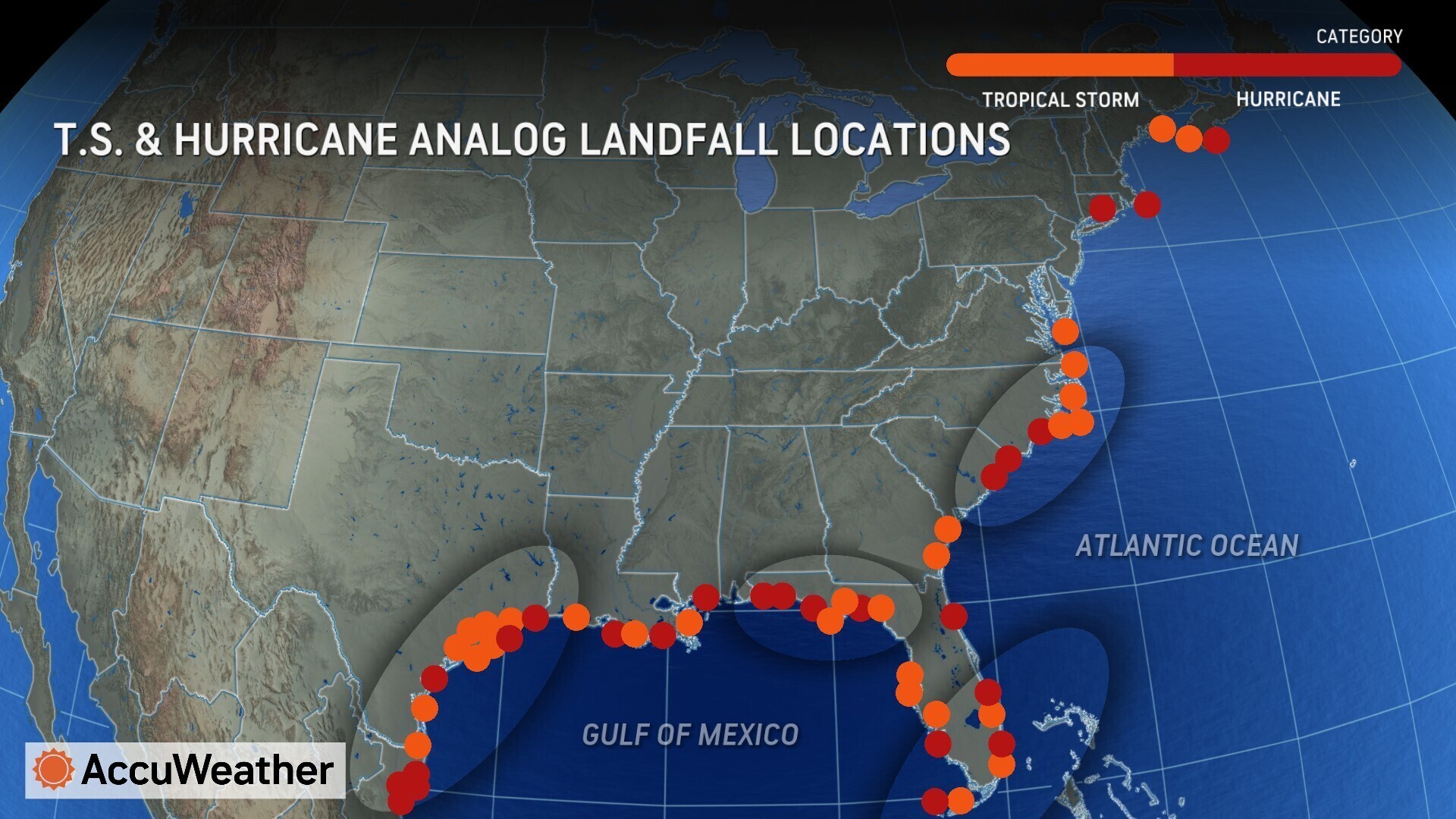
AccuWeather expert meteorologists say Texas, South Florida, the Florida Panhandle, and the Carolinas face a heightened risk of direct impacts this hurricane season.
“Temperatures can get incredibly hot in the first few days that follow a major hurricane landfall. It’s crucial that people have plenty of bottled water in their emergency supplies to stay hydrated. It’s important that storm survivors, first responders, volunteers, contractors, and utility crews working to restore power have access to shaded areas to take breaks and avoid heat illness or even heat stroke.” said Porter. “People need to be extremely careful using generators after tropical storms and hurricanes. We know people are desperate to get power and air conditioning back when they’re facing extreme heat and humidity after a storm, but improper generator use can lead to serious injuries and tragic outcomes.”
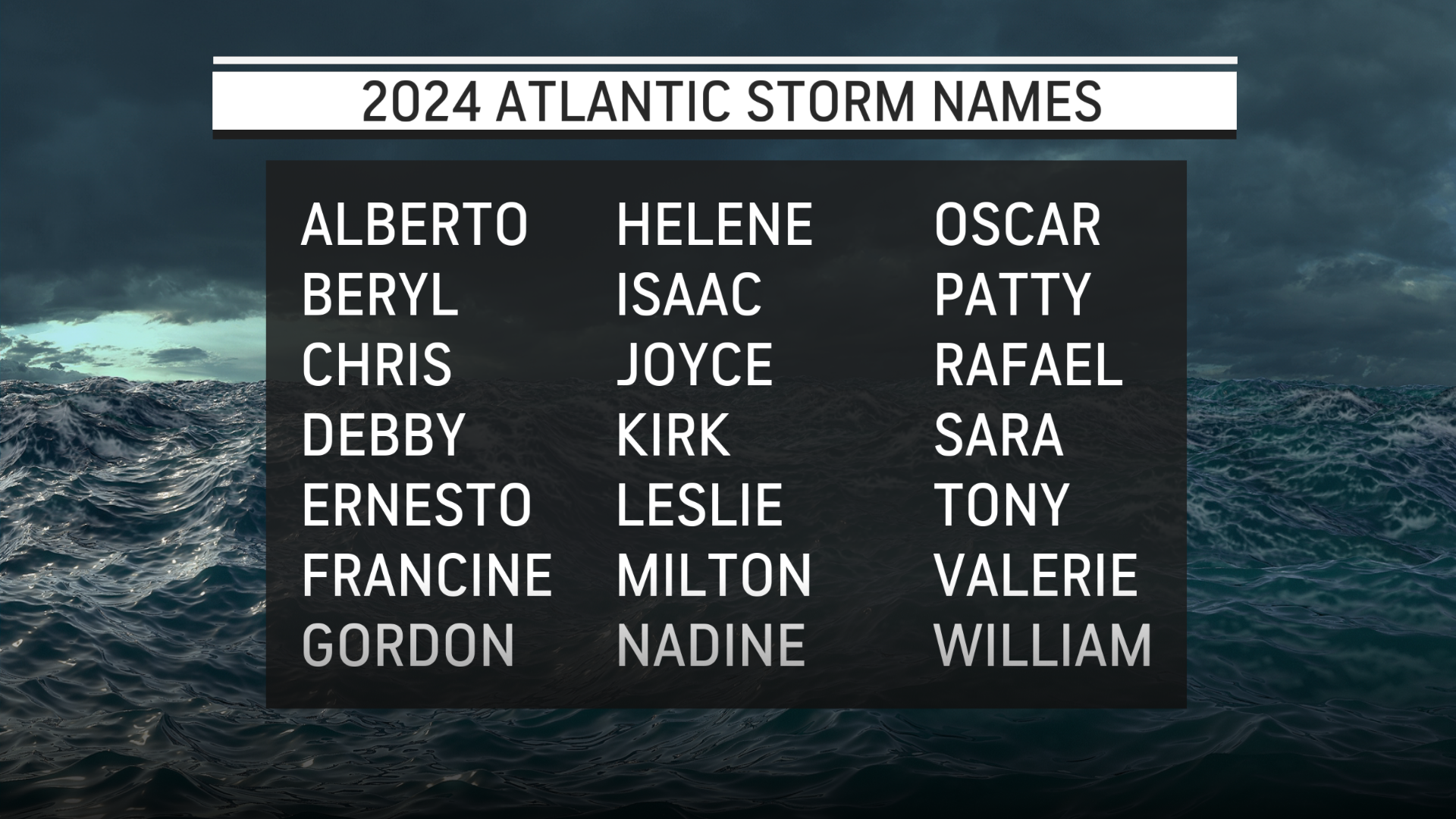
Additional AccuWeather Resources:















